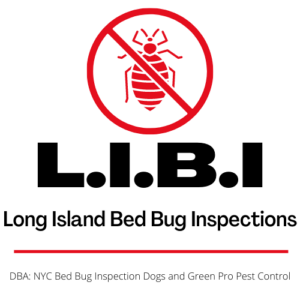Ask any experienced gardener and they’ll tell you that planting specific plant varieties in your garden can help to keep pests away from flowers and vegetables. It’s a common gardening technique to both protect small gardens and reduce the need for pesticides. But are there any plants that actually repel bed bugs? And could they be used to help prevent bed bug infestations?
How do Plants Repel Bed Bugs?
Bed bugs are attracted to human beings by the carbon dioxide we exhale, the heat of our bodies, and our scent. Like other insects bed bugs have learned to avoid things that smell bad to them. The same is true for most animals – including humans.
We’re drawn to the smell of things that are good for us – like fresh food. We are also repelled by the smell of things that may be hazardous. Rotten food or poisons that might kill us naturally smell bad to us so we avoid them. It’s a natural instinct.
Just as certain scents will repel an animal so certain smells should repel bed bugs and other insects. So let’s look at a few examples.
Geraniums
Geraniums are a popular flowering plant found in gardens across the country. They contain a chemical called geraniol, which is a basic ingredient in many essential oils. Geraniol is a recognized bed bug repellant, and can be found in several over-the-counter bed bug sprays.
Recent laboratory studies looked into the effectiveness of geraniol as a bed bug repellant. They tested candles and diffusers that contained the chemical and found that it repelled both mosquitos and bed bugs. However, the geraniol used in the experiments was pure and applied directly as needed.
That leaves some doubt as to whether geraniums, and the geraniol they contain, can be effectively used to keep bed bugs at bay. The problem is the chemical itself is contained in the leaves and stems of the plant and not enough is expelled to casually repel any insects.
Still – geraniums are pretty.
Lemongrass
Lemongrass is, as you might guess, a type of grass. It’s a tall and spike plant with leaves that reach up toward the light before curving back on themselves. In the wild it can reach as much as five feet in height.
Lemongrass contains citronella oil. You’re probably familiar with citronella candles. These candles are routinely sold as natural mosquito repellants and they can be found on decks and at camping sites throughout the country. Their effectiveness is open to debate. Any smoking candle will likely repel most flying insects.
Like geraniums the active chemical in lemongrass is geraniol. And the problem here is the same. Lemongrass doesn’t give off enough geraniol into the air to make an effective repellant. As such it’s unlikely that lemongrass could have any direct effect on a potential bed bug infestation.
Lavender
Lavender is a common flowering plant. It is a member of the mint family. It is also naturally insecticidal, and insecticides often double as repellants. A recent study attempted to determine if lavender oil could act as a general repellant for common pests.
The study team doused filter paper with lavender oil and placed that paper in a petri dish. They then introduced poultry mites to the sealed environment. Upwards of 60% of the mites were dead within 24 hours. They next repeated the experiment, but left the petri dish open to the air. This time only 11% of the mites were killed.
The result of the study seemed to show that lavender in the open is a poor insecticide. While it is selectively effective in concentrated form and in direct contact with the pest it doesn’t perform well as a general repellant.
More importantly for this discussion lavender wasn’t specifically tested as a repellant for bed bugs. It’s true that some online natural health gurus have endorsed lavender as a bed bug insecticide the science doesn’t back up the claims.
Using Plants to Repel Bed Bugs
While it’s broadly true that some plants have properties that repel or even kill bed bugs and other pests they are ultimately ineffective in everyday situations. A garden filled with lavender, lemongrass and geraniums won’t keep bed bugs out of your home. Partly because they simply don’t have the repellant power. But mostly because it’s counter to how bed bugs enter a home.
These pests aren’t traipsing across your lawn and walking through the front door. Bed bugs tend to enter our homes by riding on us and our belongings. So it doesn’t much matter what you plant in your garden. Still, that doesn’t mean you should stop and smell the roses along your way.
Published by Scott Palatnik
If you believe you’ve brought bed bugs into your home or office, give us a call, we can help!
Now with 2 locations. On Long Island @ 516-619-6149, or in NYC @ 212-299-9186
We are Long Island Bedbug Inspections.
Your Bedbug Inspection, and Elimination solution.


